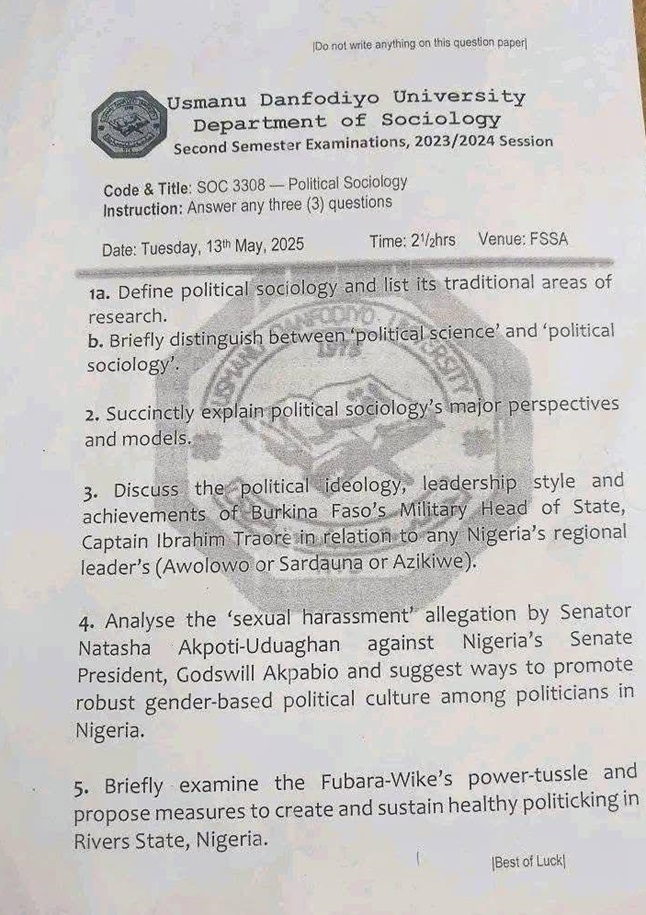“Sociology Students Asked to Analyse Political Implications of the Case and Propose Gender-Based Reforms”
In a development that signals just how far-reaching the controversy surrounding Senator Natasha Akpoti-Uduaghan’s sexual harassment allegations has become, the Department of Sociology at the University of Usman Dan Fodio included the case in its recent examination paper, tasking students to critically analyse the incident and suggest frameworks for promoting gender-inclusive political culture in Nigeria.
The question, embedded in the university’s undergraduate sociology examination, referenced the now viral accusation made by Senator Natasha against the President of the Nigerian Senate, Godswill Akpabio, which has stirred national attention, heated media debates, and institutional discomfort within the corridors of power.
According to students who sat for the examination, the question not only cited the case as a subject of political analysis but also required them to explore the deeper implications of harassment within Nigeria’s political space, especially against female politicians. The examiners further directed students to propose actionable solutions for building a more robust, gender-sensitive political culture in Nigeria.

Observers have hailed the development as a significant academic response to what many see as a historic moment in Nigeria’s fight against gender-based political suppression and harassment.
While the Senate leadership continues to dodge the full weight of the allegation through what critics call institutional shielding, Natasha’s boldness continues to echo beyond the chambers and now entering classrooms and curriculums.
Analysts argue that this academic recognition confirms the case as a textbook example of gender politics in action, one that may reshape national conversations for years to come. As the legal and political drama unfolds, it appears Senator Natasha Akpoti-Uduaghan is not only confronting her accusers but educating the next generation while at it.




